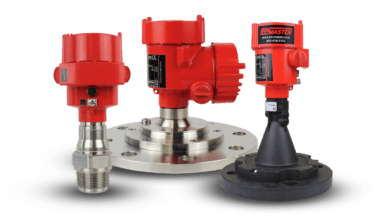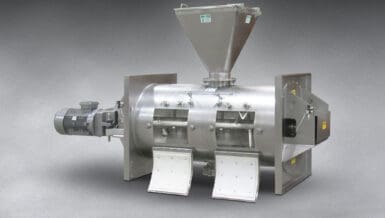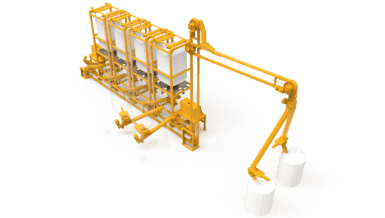The quest for efficient energy management is paramount for professionals navigating dry material processing landscapes. In a realm where profit margins may run tight, partnering with seasoned experts to craft streamlined, energy-saving processes becomes indispensable.
Are your energy expenses strategically controlled?
Beyond the sustainability drive, energy outlays deeply impact products with slender margins, intensifying the need for cost-saving measures. Consider the sheer energy consumption during internal material transport, where tons of materials traverse the facility. Choosing the right conveying technology, guided by adept plant design principles, and tailored to material properties, becomes pivotal. Embracing continuous mixing processes in standardized production settings significantly curtails energy usage.
Addressing Equipment Wear and Efficiency in Dry Material Processing
Energy efficiency isn’t just about costs; it’s about resilience and adaptability to a rapidly changing energy landscape. Today’s industries grapple with fluctuating energy prices and stringent decarbonization mandates.
With manufacturing contributing to a significant portion of global CO2 emissions and energy consumption, the onus is on process industries to act swiftly in bolstering energy efficiency.
The digitalization and automation of processes emerge as linchpin strategies, enabling substantial emissions reduction and resource conservation in energy-intensive sectors.
Embracing innovative digital solutions empowers sustainability endeavors in both new and existing plants, promising tangible outcomes in the form of:
Proactive Downtime Prevention: Smart sensors coupled with AI swiftly detect mechanical component failures, averting energy wastage and production losses.
Predictive Maintenance: AI-driven solutions foresee potential asset downtimes, curbing unnecessary energy consumption during cleaning or restarting processes.
Remote Monitoring: Intelligent sensors monitored remotely reduce CO2 emissions by minimizing travel and preventing energy or raw material wastage.
Digital Process Twin Technology: Integrating plant data with real-time process models offers actionable insights, enabling significant reductions in emissions and energy costs.
Holistic Energy Management: Comprehensive enterprise-wide solutions enable precise identification of significant energy consumers, evaluation of efficiency measures, and optimization of energy procurement.
These innovative approaches offer a data-driven pathway toward a more sustainable process industry. Empowered with insights, plant operators can make informed decisions and implement targeted strategies that elevate energy efficiency in dry material processing, securing a greener, more resilient future.










































